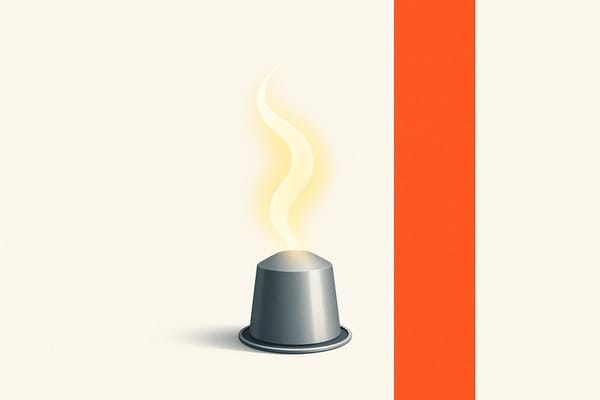Cortisol Awakening Response: What Science Says
Learn how the Cortisol Awakening Response influences your energy, mood, and stress management, and discover strategies to optimize it.

The Cortisol Awakening Response (CAR) is your body’s natural energy boost within 30–45 minutes of waking. This surge in cortisol, a key stress hormone, helps you feel alert, manage stress, and maintain emotional balance throughout the day. But disruptions in CAR - like poor sleep or chronic stress - can lead to fatigue, mood swings, and focus issues.
Key Takeaways:
- What CAR Does: Boosts energy, aligns your body clock, and supports stress management.
- What Affects CAR: Sleep quality, morning light exposure, diet, and stress levels.
-
How to Support CAR:
- Stick to a consistent sleep schedule.
- Get sunlight within 30 minutes of waking.
- Eat nutrient-rich foods and stay hydrated.
- Practice stress management techniques.
By understanding and optimizing CAR, you can improve your mornings and sustain energy all day. Let’s explore how it works and what you can do to make the most of it.
Functions of the Cortisol Awakening Response
The Biology of CAR
The Cortisol Awakening Response (CAR) is a sharp rise in cortisol levels shortly after waking up. For healthy individuals, this surge is a natural and measurable response, preparing the body to tackle the day's demands [1]. It’s a well-coordinated biological process.
Cortisol is released by the adrenal glands, with levels peaking in the morning and gradually dropping throughout the day, reaching their lowest point at night [2]. This daily rhythm plays a key role in keeping your body’s internal systems running smoothly.
CAR and Circadian Rhythms
CAR helps align your internal biological clock with external environmental cues. Interestingly, this process can occur even in complete darkness, showing that it doesn't rely solely on light [1]. However, exposure to morning light enhances its effectiveness.
This system integrates various processes, linking your internal clock to external signals like light. It also adjusts how sensitive your adrenal glands are to hormonal cues [3]. Beyond syncing your internal rhythms, CAR impacts your daily energy levels, stress management, and emotional balance.
CAR's Effects on Energy, Stress, and Mood
| Aspect | Function | Impact |
|---|---|---|
| Energy Levels | Provides a natural boost | Helps maintain activity throughout the day |
| Stress Response | Prepares the body for challenges | Enhances resilience to daily stressors |
| Emotional Balance | Aids emotional recovery | Supports emotional stability |
| Cognitive Function | Activates brain systems | Improves memory, recall, and mental clarity |
When working as it should, CAR ensures you feel energized in the morning and ready to wind down by evening [2]. It also supports essential functions like immune defense, blood sugar balance, and managing inflammation [2]. By maintaining a healthy CAR, you can better align your body’s natural rhythms for smoother mornings and more productive days.
Next, we’ll dive into the factors that can influence CAR.
Factors Affecting the Cortisol Awakening Response
Impact of Sleep Quality and Patterns
The quality and duration of your sleep have a direct effect on the cortisol awakening response (CAR). Disrupted sleep patterns - like those caused by insomnia or sleep apnea - can lower CAR, which may result in reduced energy levels and potential health risks [1][3]. Sticking to a consistent sleep schedule can help maintain a healthy CAR. Research has linked a blunted CAR to issues such as increased inflammation and metabolic problems [1][4].
Influence of Health and Lifestyle
Your habits and overall health play a major role in regulating CAR. For instance, engaging in physical activity, particularly in the morning, has been shown to improve CAR levels [2].
| Factor | Effect on CAR | Recommended Action |
|---|---|---|
| Physical Activity | Improves CAR levels | Incorporate regular morning exercise |
| Diet Quality | Impacts hormone balance | Eat nutrient-rich whole foods |
| Chronic Stress | Lowers CAR | Practice stress management |
| Health Conditions | Alters CAR patterns | Monitor health regularly |
Chronic stress is especially impactful, as it can disrupt the hypothalamic-pituitary-adrenal (HPA) axis, weakening your ability to handle stress effectively [1][4].
Effects of Light and Timing
Morning exposure to natural light, particularly blue light, supports CAR by helping to align your internal body clock. On the other hand, exposure to light in the evening can interfere with the sleep-wake cycle by suppressing melatonin, which in turn affects CAR [1][3]. The suprachiasmatic nucleus (SCN) in the brain processes light signals from the retina, playing a key role in syncing your internal clock [1][3].
"The cortisol awakening response is closely regulated by an intricate dual-control system, which draws upon key circadian, environmental, and neurocognitive processes to best predict the daily need for cortisol-related action." [1][3][4]
Age is another factor, as older adults generally experience a more subdued CAR compared to younger individuals [1][3].
Strategies for Boosting CAR and Morning Energy
Building a Consistent Morning Routine
Starting your day with a consistent routine can help your body take full advantage of its natural cortisol boost. Stick to a regular wake-up time, even on weekends. Make it a habit to get some sunlight within 30 minutes of waking - this helps regulate your internal clock and supports your cortisol awakening response (CAR) [1].
Nutrition, Hydration, and Supplements
What you consume in the morning plays a big role in supporting CAR. Start your day with water to rehydrate after sleep. Include foods packed with vitamins like B5, B12, and Zinc to support adrenal health and energy levels [2]. If you're looking for an extra edge, Zest Labs offers a delayed-release caffeine supplement designed to sync with CAR, helping to ease morning grogginess and boost energy.
Prioritizing Sleep Quality
High-quality sleep is essential for a healthy CAR. Create a sleep-friendly environment that’s dark, quiet, and cool. Establish a relaxing pre-bedtime routine - like reading or meditating - to wind down effectively [2][3]. These small adjustments can enhance your body's cortisol response in the morning and improve overall sleep.
"The cortisol awakening response is closely regulated by an intricate dual-control system, which draws upon key circadian, environmental, and neurocognitive processes to best predict the daily need for cortisol-related action." [1][3][4]
Conclusion: Optimizing CAR for Better Mornings and Productivity
The Cortisol Awakening Response (CAR) is your body’s way of gearing up for the day. This natural surge in cortisol levels shortly after waking helps boost energy, sharpen focus, and build resilience. By fine-tuning certain daily habits, you can make the most of CAR for improved energy, mood, and mental clarity.
CAR plays a key role in metabolic, immune, and cognitive functions, making it a central factor in overall health and productivity [1][3]. Factors like sleep quality, light exposure, and nutrition directly influence how effectively CAR works, so paying attention to these areas can make a noticeable difference.
Here are three areas worth focusing on:
- Sleep Quality: Disrupted sleep can throw off your cortisol rhythm, leaving you drained in the morning [1][3]. Stick to a consistent sleep schedule and create a restful environment to support your body’s natural processes.
- Morning Light Exposure: Getting natural light in the morning helps sync CAR with your body’s internal clock [1]. This simple practice can set the tone for a more energized and balanced day.
- Lifestyle Choices: Good sleep, exposure to morning light, and a nutrient-packed diet all contribute to healthy CAR function [2]. Pair these with stress management techniques to keep your energy levels steady.
"The cortisol awakening response is closely regulated by an intricate dual-control system, which draws upon key circadian, environmental, and neurocognitive processes to best predict the daily need for cortisol-related action." [1][3]
FAQs
How does cortisol affect daily rhythms?
Cortisol follows a predictable daily pattern, peaking in the morning and steadily decreasing as the day progresses. This rhythm helps regulate your body's internal clock and aligns key functions with the sleep-wake cycle [1][4].
How does light exposure affect CAR?
Morning light, particularly blue light, boosts the cortisol awakening response (CAR) by signaling your body to wake up and sync with its natural rhythm [1]. On the other hand, exposure to light in the evening can disrupt this process, interfering with your sleep cycle.
What disrupts CAR and how can you protect it?
| Disruptive Factor | Impact | Solution |
|---|---|---|
| Poor Sleep Consistency | Weakens CAR's effectiveness | Stick to a regular sleep schedule |
| Chronic Stress | Throws off cortisol patterns | Use stress-reduction techniques |
| Inflammation | Hampers CAR function | Adopt habits that reduce inflammation |
"The cortisol awakening response is closely regulated by an intricate dual-control system, which draws upon key circadian, environmental, and neurocognitive processes to best predict the daily need for cortisol-related action." [1][3]
Can supplements support a healthy CAR?
Yes, nutrients like Vitamin B5, B12, and Zinc can help maintain adrenal health and support CAR function [2]. Zest Labs offers a delayed-release caffeine supplement designed to complement your natural CAR, enhancing morning energy levels. However, always consult a healthcare provider before trying new supplements.
How does CAR affect mood and energy?
When your CAR is functioning well, it boosts alertness in the morning and helps stabilize mood throughout the day [2]. It provides natural energy and emotional steadiness. If disrupted, it can cause fatigue, low motivation, and mood swings.





